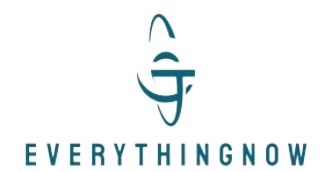The Benefits of Exclusive Breastfeeding for Mother and Baby
Learn about the numerous benefits of exclusive breastfeeding for both the mother and baby, and find tips on overcoming common challenges
Exclusive breastfeeding is when a baby is fed only breast milk for the first six months of their life. Breast milk is the perfect food for infants, as it provides all the nutrients they need for healthy growth and development.
The World Health Organization (WHO) recommends exclusive breastfeeding for the first six months of a baby's life, and then continued breastfeeding with the addition of appropriate complementary foods for up to two years or beyond.
Exclusive breastfeeding has numerous benefits for both the mother and the baby. For the baby, breast milk provides all the necessary nutrients in the right amounts and is easily digestible, reducing the risk of diarrhea, pneumonia, and other illnesses. Breast milk also contains antibodies that help protect the baby from infections and diseases.
Breastfeeding has also been linked to a reduced risk of sudden infant death syndrome (SIDS), childhood leukemia, and obesity. It also promotes bonding between the mother and baby, which is essential for the baby's emotional development.
For the mother, breastfeeding has numerous benefits as well. Breastfeeding releases hormones that promote maternal bonding and reduce the risk of postpartum depression. It also helps the uterus return to its pre-pregnancy size more quickly and reduces the risk of breast and ovarian cancer.
Benefits:
-
Nutritional Benefits: Breast milk is the best source of nutrition for infants, containing all the necessary nutrients and antibodies needed for healthy growth and development.
-
Reduced Risk of Infections: Breastfed babies have a lower risk of infections, including ear infections, respiratory infections, and gastrointestinal infections.
-
Bonding and Emotional Connection: Breastfeeding can promote bonding and emotional connection between mother and baby.
-
Convenient and Cost-Effective: Breast milk is always available, requires no preparation, and is free, making it a convenient and cost-effective option for feeding infants.
-
Reduced Risk of Chronic Diseases: Breastfeeding has been linked to a reduced risk of chronic diseases, such as obesity, diabetes, and certain cancers, in both mother and baby.
Breastfeeding is also convenient and cost-effective, as it requires no preparation, is always at the right temperature, and is free.
Challenges:
-
Difficulty with Latching: One of the most common challenges faced by new mothers is difficulty with latching. This can lead to frustration and pain for both the mother and baby.
-
Low Milk Supply: Some mothers may struggle with low milk supply, making it difficult to exclusively breastfeed their baby.
-
Engorgement and Mastitis: Engorgement is when the breasts become overly full and uncomfortable, which can lead to mastitis, a painful infection of the breast tissue.
-
Social Stigma: Exclusive breastfeeding can be challenging for working mothers who may face social stigma or lack support in the workplace to continue breastfeeding.
-
Lack of Sleep: Breastfeeding on demand can lead to sleep deprivation for mothers, especially in the first few months when babies need to be fed frequently.
To overcome these challenges, mothers should seek support from their healthcare providers, lactation consultants, or breastfeeding support groups. They can also try different breastfeeding positions, use breast pumps, and express milk to increase their milk supply.
In conclusion, exclusive breastfeeding is the best way to provide optimal nutrition and protection for a baby's health and development. It has numerous benefits for both the mother and the baby and is convenient and cost-effective. Mothers who face challenges with breastfeeding should seek support and resources to overcome these challenges and continue to provide their babies with the best possible start in life.

 Ashish Kumar
Ashish Kumar 












